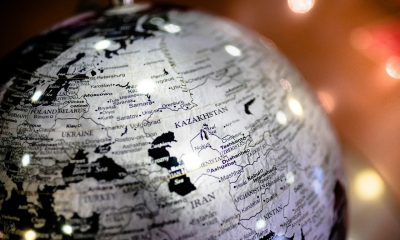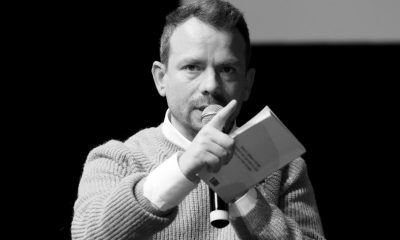koronavirusas
Nusikalstami tinklai ir toliau klesti dėl COVID pandemijos

COVID-19 has accelerated existing trends of organized criminal activity with more infiltration in the legitimate economy, as well as enlarging the scale of illicit trade, including in opportunities specifically driven by the pandemic, writes Transcrime Director Ernesto U. Savona.
At Transcrime we have continued to monitor the impact of COVID-19 on organised crime and illicit trade, reporting our findings to the Jungtinių Tautų narkotikų ir nusikalstamumo biuras (UNODC).
Cybersecurity researchers in Israel estimate that more than 1,700 new vaccine-related websites have cropped up since November. On the dark web, counterfeit COVID-19 vaccines are offered next to cocaine, opioid medications, handguns, and fake passports.
To understand the scale of the problem, the World Economic Forum (WEF) estimated that over US$2.2 trillion (3% of global GDP) was lost due to illicit trade leakages in 2020. Meanwhile, the International Chamber of Commerce predicts that global counterfeit trade will reach $4 trillion by 2022, primarily fueled by e-commerce.
The ingredients for illegal trade are almost always the same: consumer demand, business supply and regulation. Euromonitor recently pointed out how these drivers have accelerated under the COVID pandemic, and what the potential social and economic consequences are going to be in the years ahead, including the ‘normalization’ of criminal behaviour.
Countries concerned about health and socio-economic problems associated with the COVID-19 pandemic should take note. We are now in the realm of regulatory overreach, which happens when a government’s capacity to place bans or excess regulation could be counterproductive. This, ultimately, increases the amount of bureaucracy and, in some cases, pushes consumers into the illicit market.
A possible driver in illicit trade is the authorisation of extra excise taxes as cash strapped governments try to balance fiscal budgets. Enacting these policies should be closely studied to measure the effect the increase in prices by excise taxes could have. Consumers could be pushed into seeking illicit products as the price gap between legal and illicit goods widens.
Pavyzdžiui, EU border forces seized 370 million illegal cigarettes in 2020 alone, with around a third of them originated from non-EU Eastern European countries like Belarus. One of the reasons the trade remains so profitable – and why so much of the contraband continues to flow over the EU border – is that cigarettes, heavily taxed in the EU, are priced much lower in Belarus. This discrepancy has been tolerated for years and it is important to note that recently the EU has decided to address it.
Political trends often go in contradictory directions: overregulating to fight against crime and illicit trade at a country and international level, while at the same time deregulating public spaces, for example, through the creation of Free Trade Zones (FTZs).
Overregulated legislative landscapes, which contain legal and economic loopholes based on the differences between countries, co-exist with the increasing number of exceptions that can be found in FTZs.
This combination makes international police cooperation difficult, inefficient, and ineffective, and allows illicit trade to develop. The task of combatting organised crime and illicit trade has been made harder by overregulation, mostly in the last twenty years. Deregulation in the free trade zones is the result of increased demand for more efficiency in the customs and transit procedure of goods.
But you now have two contradictory and opposing regimes. The former is more complex, with many loopholes, while the second is simple, efficient and in some cases criminogenic because criminals exploit the lack of regulation and control. International police co-operation in the first regime is overloaded by procedures, in the second it is quite rare. Yet the two regimes coexist.
Is there any room to unify these trends and build a single regime to control organized crime and illicit trade?
We can achieve this by analysing the main legislative and organizational obstacles to international cooperation between the police and the judiciary, but we need to find good methodologies and data for analysing the dynamics of criminal phenomena. At the same time, we need to understand why some free trade zones produce opportunities for organized crime and illicit trade and others do not, and then see whether we can reduce the trade-off between the lack of law enforcement controls and their efficiency.
Legislators must seek to simplify the legislative landscape and cut bureaucracy that prevents us from having a complete view of the problem. Meanwhile, there must be more dialogue through public and private partnerships, which will facilitate greater international police cooperation.
Ernesto U. Savona is the director of Transcrime, Joint Research Centre of the Università Cattolica del Sacro Cuore, Università of Perugia and University of Bologna, and professor of criminology at the Università Cattolica del Sacro Cuore in Milan and at the University of Palermo.
Pasidalinkite šiuo straipsniu:
-

 Bangladešasprieš 5 dienas
Bangladešasprieš 5 dienasBangladešo užsienio reikalų ministras kartu su Bangladešo piliečiais ir užsienio draugais vadovauja Nepriklausomybės ir Nacionalinės dienos šventei Briuselyje
-

 Konfliktaiprieš 2 dienas
Konfliktaiprieš 2 dienasKazachstanas žengia: Armėnijos ir Azerbaidžano takoskyros tiltas
-

 Rumunijaprieš 5 dienas
Rumunijaprieš 5 dienasNuo Ceausescu našlaičių namų iki valstybinių pareigų – buvęs našlaitis dabar siekia tapti Pietų Rumunijos komunos meru.
-

 Kazachstanasprieš 4 dienas
Kazachstanasprieš 4 dienasVykdydami aplinkosaugos kampaniją, savanoriai atranda bronzos amžiaus petroglifus Kazachstane
























